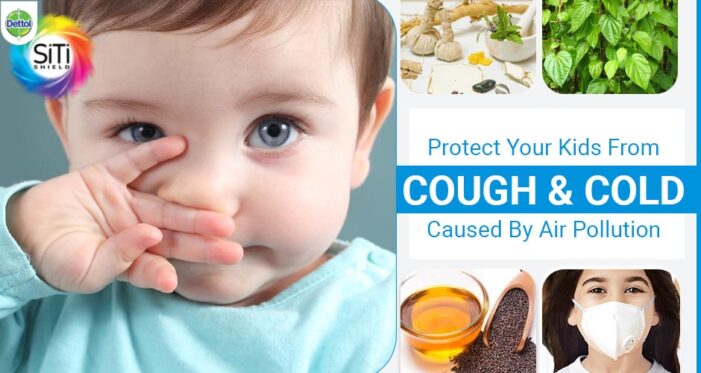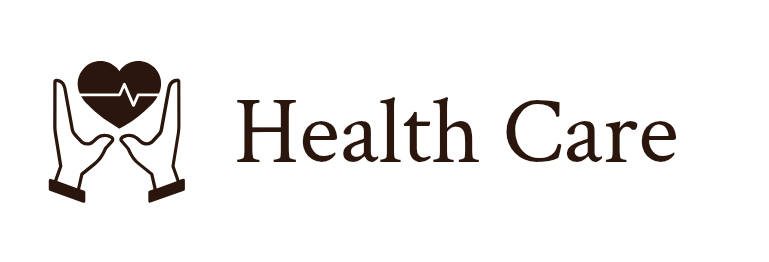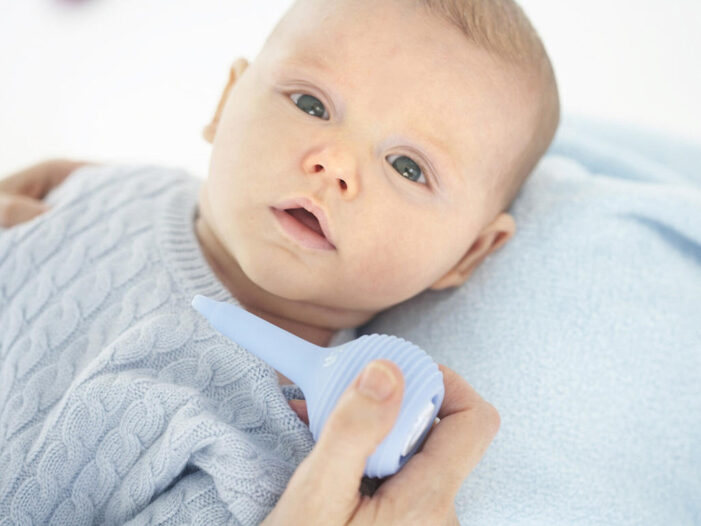Welcoming a newborn baby into your home is an exhilarating and joyous experience. But along with all the cuddles and coos, there may also come some challenges – like when your little bundle of joy catches a cold. As parents, it’s natural to feel concerned and want to provide relief for your baby as quickly as possible. That’s why we’ve put together this informative guide on newborn baby cold home remedies. In this article, we’ll explore what causes a newborn baby to get a cold, share some effective home remedies to help alleviate their symptoms, discuss when it might be time to call the doctor and much more. So let’s dive in and discover how you can lend a helping hand when those sniffles strike!
Contents
Introduction
Having a newborn baby is an exciting and joyous time for parents. However, it can also be worrisome when your little one catches a cold. A newborn’s immune system is still developing, making them more susceptible to infections and illnesses. In this blog post, we will explore some home remedies that can help alleviate the symptoms of a newborn baby cold.
When it comes to treating a newborn baby cold, it’s important to remember that their delicate systems require gentle care. While over-the-counter medicines may be suitable for older children and adults, they are not recommended for babies under 1 month old. Instead, there are several natural remedies that you can try at home.
One of the most effective ways to relieve congestion in a newborn is by using saline drops or spray. These products work by loosening mucus and helping your little one breathe easier. You can administer saline drops by placing a few drops into each nostril using a dropper or squeezing the spray bottle gently.
Another remedy worth trying is steam therapy. Sit in the bathroom with your baby while running hot water in the shower to create steam. The warm moisture will help loosen mucus and clear nasal passages naturally.
In addition to these remedies, keeping your baby hydrated is crucial during illness. Offer breast milk or formula frequently as fluids help thin out mucus secretions and prevent dehydration.
While these home remedies can provide relief for mild cases of newborn baby colds, it’s essential to know when medical attention is necessary. If your baby shows signs of severe distress such as difficulty breathing or high fever (over 100 degrees Fahrenheit), it’s best to contact their pediatrician immediately.
Remember that every child is different, so what works for one may not work for another when it comes to easing cold symptoms in newborns.
Hence being observant of your little one’s condition and seeking professional advice if needed ensures their health and well-being during this vulnerable time.

Newborn baby cold home remedies
When it comes to finding remedies for a newborn baby’s cold, it’s important to remember that their immune systems are still developing and they are more susceptible to infections. Before trying any home remedies, always consult with your pediatrician to ensure the safety and appropriateness for your little one.
One effective remedy is saline nasal drops or spray. These can help loosen mucus and clear congestion in your baby’s nasal passages. Simply place a few drops in each nostril or use a saline spray as directed by your doctor.
Humidifiers are another valuable tool in easing cold symptoms. Dry air can exacerbate congestion, so using a cool mist humidifier in your baby’s room can provide much-needed moisture and relieve discomfort. Be sure to clean the humidifier regularly to prevent bacteria growth.
A warm bath can also bring relief to a congested baby. The steam from the bath helps moisten their airways, making it easier for them to breathe. Remember, though, not too hot! Ensure the temperature of the water is comfortable but not scalding-hot.
Breast milk is nature’s miracle elixir and has immune-boosting properties that can help fight off colds. If you’re breastfeeding, continue doing so as much as possible during this time; if not, consult with your doctor about appropriate alternatives.
Keep an eye on hydration levels – especially if there is fever present – as babies may become dehydrated when fighting off illnesses like colds. Offer frequent feedings or small sips of water (if advised by your doctor) throughout the day.
Remember: these remedies should be used alongside proper medical care from professionals who know best how to assess and treat infants’ conditions effectively.
Newborn Baby Cold and Cough Home Remedies
When a newborn baby catches a cold or cough, it can be a distressing time for both the baby and their parents. As little ones have delicate immune systems, it’s important to approach treatment with caution. While there are no miracle cures, there are some home remedies that may provide relief for your little one.
- Saline Drops: Using saline drops in your baby’s nose can help alleviate congestion and make breathing easier. Simply place a few drops in each nostril before using a bulb syringe to gently remove any mucus.
- Steamy Bathroom: Create a steamy environment by running hot water in the shower and sitting with your baby in the bathroom for around 10 minutes. The moist air can help loosen congestion and ease discomfort.
- Elevate the Head: Prop up your baby’s head slightly during sleep by placing a small rolled-up towel under the mattress of their crib or bassinet. This can help reduce nasal congestion and promote better breathing.
- Hydration: Ensure your baby stays hydrated by offering frequent feeds if they’re breastfeeding or formula-fed. For babies older than six months, you can also offer sips of water from a cup.
Remember, it’s essential to consult with your pediatrician before trying any home remedies on your newborn baby, especially if they’re younger than three months old or showing severe symptoms such as high fever or difficulty breathing.
By taking care of your little one at home using these gentle remedies, you may be able to provide some comfort while waiting for their immune system to fight off the cold virus naturally.
Cold medicine for babies under 1 month
It can be extremely worrisome when your newborn baby catches a cold, especially if they are under 1 month old. While there may be over-the-counter cold medicines available for older children and adults, it is important to note that these should never be given to babies under 1 month without first consulting a pediatrician.
The reason behind this caution is that the developing immune system of newborns is still very fragile and delicate. Medications designed for older children or adults may have ingredients that could potentially harm their tiny bodies. It’s always best to err on the side of caution and seek professional medical advice before giving any medication to your little one.
In most cases, doctors will advise against using any type of cold medicine for babies under 1 month old. Instead, they typically recommend focusing on providing comfort measures such as ensuring proper hydration, keeping the nasal passages clear with saline drops or suctioning devices specifically made for infants, and maintaining a clean environment free from irritants like smoke or strong odors.
Remember, every baby is unique and what works well for one may not work as effectively for another. If you’re unsure about how to alleviate your newborn’s symptoms or if their condition worsens despite home remedies, it’s crucial to reach out to a healthcare professional promptly. They will be able to provide personalized guidance based on your baby’s specific needs.
While it can feel overwhelming when your precious little one has a cold at such an early age, rest assured that with proper care and attention, most cases resolve within a week or two. Just remember: always consult with your doctor before administering any medications or treatments to ensure the healthiest outcome for your baby.
2-Month-Old Baby Cold and Cough
At two months old, your baby is still developing their immune system, which makes them more susceptible to catching a cold or cough. As a parent, it can be tough seeing your little one under the weather, but there are steps you can take to provide relief and support their recovery.
Ensuring that your baby gets plenty of rest is crucial. Sleep helps their body fight off infections and promotes healing. Soothing techniques such as gentle rocking or swaddling may help them settle down for sleep.
Keeping the air in your home moist can also ease congestion caused by a cold. You can use a cool-mist humidifier in the room where your baby sleeps to add moisture to the air and reduce nasal discomfort.
It’s essential to keep your baby hydrated during this time too. Offer breast milk or formula frequently as fluids help thin mucus secretions and prevent dehydration.
You must never give over-the-counter medications designed for adults or older children without consulting a pediatrician first. They will advise on suitable options if necessary based on the severity of symptoms.
Remember, always consult with a healthcare professional if you have concerns about your 2-month-old’s cold or cough before trying any remedies at home
them more susceptible to catching a cold. There are several factors that can contribute to a newborn baby getting a cold.
One of the main causes is exposure to viruses. Newborns can catch a cold when they come into contact with someone who has a viral infection, such as the common cold or flu. This can happen when family members or caregivers have been sick and handle the baby without taking proper precautions.
Environmental factors can also play a role in causing a newborn baby to get a cold. Cold weather and dry air can irritate their sensitive nasal passages, making it easier for viruses to take hold and cause symptoms.
Additionally, poor ventilation in living spaces or being in close proximity to others who are sick can increase the likelihood of transmission of respiratory viruses.
It’s important for parents and caregivers to be vigilant about protecting newborns from exposure to germs by practicing good hygiene habits such as thorough handwashing before handling the baby, avoiding crowded places during peak virus seasons, and keeping the home environment clean and free from potential sources of infection.
By understanding these causes, parents can take necessary steps to prevent their newborns from catching a cold.
Home Remedies for a Newborn Baby Cold
When your newborn baby is suffering from a cold, it can be distressing as a parent. You want to provide relief and comfort without resorting to medication. Luckily, there are several home remedies that you can try.
First and foremost, keep the room humidified. Dry air can exacerbate cold symptoms, so using a cool-mist humidifier in your baby’s room can help ease congestion and soothe their nasal passages.
Another effective remedy is saline drops or spray. These solutions help to thin out mucus and clear the nose. Gently insert the drops or spray into each nostril, followed by suctioning with a bulb syringe to remove any excess mucus.
Elevating your baby’s head while they sleep can also provide some relief. Use towels or pillows under the mattress to create a slight incline that will make breathing easier for them.
Offer plenty of fluids such as breast milk or formula to prevent dehydration and keep your baby hydrated throughout their illness. Additionally, warm liquids like chamomile tea may help soothe their throat if they are experiencing coughing spells.
Give your little one lots of love and cuddles! Comforting touch has been shown to reduce stress levels in infants and promote healing.
Remember, always consult with your pediatrician before trying any home remedies on your newborn baby.
When to Call the Doctor for a Newborn Baby Cold
Knowing when to seek medical advice for your newborn baby’s cold can be challenging, but it’s important to trust your instincts as a parent. While most cases of common cold in infants tend to resolve on their own with home remedies, there are certain situations where contacting your doctor is crucial.
If your newborn is under three months old and displaying symptoms such as difficulty breathing, rapid breathing, wheezing, or bluish lips or face, it is essential to contact the doctor immediately. These signs could indicate a more severe respiratory infection that requires medical intervention.
Fever in newborns younger than three months should also be taken seriously. If your baby has a rectal temperature of 100.4°F (38°C) or higher, consult your healthcare provider promptly. Fever in young infants can be an indication of a serious underlying condition.
Additionally, if you notice signs of dehydration in your newborn, including reduced wet diapers or lack of tears when crying, it is advisable to seek medical attention promptly. Dehydration can worsen quickly in young babies and may require intervention.
Trust yourself as the primary caregiver and advocate for your child’s health. If you have any concerns about their well-being during a cold episode that persist despite home remedies or seem out of the ordinary, do not hesitate to reach out to their pediatrician for guidance and reassurance.
Remember that every baby is unique and may require individualized care based on their specific circumstances.
Conclusion
Taking care of a newborn baby with a cold can be challenging, but with the right home remedies and precautions, you can help your little one feel better. Remember to keep the environment clean and well-humidified, use saline drops to alleviate congestion, elevate their head while sleeping, and offer plenty of fluids. It’s important to consult a doctor if your baby’s symptoms worsen or if they develop a high fever.
While these home remedies can provide relief for mild cold symptoms in newborns, it is always best to seek medical advice when in doubt. Your pediatrician will be able to assess your baby’s condition properly and suggest appropriate treatment options.
Remember that every child is unique, so what works for one may not work for another. Trust your instincts as a parent and follow expert guidance when caring for your precious bundle of joy. With time and proper care, your newborn will soon overcome their cold and return to their happy and healthy self.
As always, prioritize the health and well-being of your newborn baby above all else.

